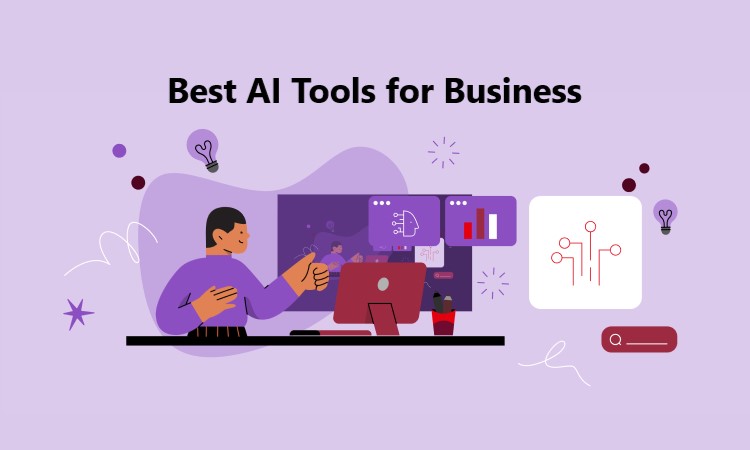
AI Tools for Marketing Automation
AI-powered marketing platforms like HubSpot and Marketo offer businesses powerful tools to streamline and automate their marketing efforts. These platforms help you plan and execute campaigns more efficiently by automating routine tasks such as email scheduling, social media posting, and lead nurturing. This frees up time to focus on strategy and creative work while ensuring campaigns run smoothly.
With AI tools, personalization becomes easier. AI helps you analyze customer data, segment your audience, and create personalized content that improves engagement. For example, HubSpot’s AI-driven features allow you to send targeted emails to the right users at the right time, increasing the chances of conversions. Personalizing interactions boosts customer satisfaction, keeping them engaged with your brand.
Additionally, platforms like Marketo provide advanced data analytics, enabling you to track campaign performance in real-time. These insights help you adjust your marketing strategies quickly, ensuring optimal results. By leveraging the best AI tools for business, you can enhance customer engagement, streamline marketing efforts, and make data-driven decisions that improve overall marketing success.
AI Tools for Customer Service
AI tools like Zendesk and Drift are transforming customer service by automating routine tasks and improving efficiency. These platforms allow you to handle customer inquiries 24/7, ensuring that customers always get the support they need. By automating responses to common questions, AI chatbots significantly reduce the time your team spends on basic queries, allowing them to focus on more complex issues.
With AI chatbots, response times are faster, enhancing the overall user experience. Drift, for example, can engage with customers in real-time, directing them to the information they need or escalating the issue to a live agent when necessary. This seamless integration between AI and human support ensures that customers receive quick, accurate help at any time.
AI-driven platforms like Zendesk also allow for better data collection and analysis. You can track customer interactions, identify trends, and gain insights into where improvements can be made. These features make Zendesk and Drift two of the best AI tools for business, providing valuable support while improving customer satisfaction and service efficiency.
AI Tools for Data Analysis and Insights
AI tools like Tableau and Microsoft Power BI have revolutionized the way businesses analyze data and gain insights. These platforms can process vast amounts of data in real-time, helping you quickly identify patterns and trends. By using AI to streamline data analysis, both tools allow businesses to make more informed, data-driven decisions. This leads to greater efficiency and improved accuracy in reporting and forecasting.
Tableau leverages AI to simplify complex datasets into visual formats that are easy to interpret. You can create dynamic dashboards that update in real-time, providing actionable insights. Power BI, on the other hand, integrates seamlessly with various data sources and uses AI to enhance data analysis through advanced algorithms. Its machine learning capabilities allow you to predict trends and create more accurate forecasts.
These AI-powered tools are among the best AI tools for business, especially for companies needing to make quick, informed decisions. Both platforms also allow for collaborative sharing of insights across teams, helping to align strategies and goals based on the latest data. By using these tools, you can stay ahead in a competitive market with real-time insights that improve overall performance.
AI in Financial Management and Forecasting
AI tools like QuickBooks and Xero are transforming financial management by automating key processes such as bookkeeping and expense tracking. These platforms use AI to streamline repetitive tasks, reducing the need for manual data entry. This allows you to maintain more accurate financial records while saving time. With automated features like real-time transaction syncing and expense categorization, managing your finances becomes less tedious and more efficient.
In addition to bookkeeping, AI also enhances financial forecasting. Tools like Xero provide insights into cash flow trends, helping you predict future financial performance with greater accuracy. QuickBooks integrates AI-driven algorithms to analyze spending patterns and make financial recommendations, enabling more informed budgeting and planning. This functionality helps you adjust your financial strategy based on up-to-date data, ultimately improving decision-making.
These platforms are considered some of the best AI tools for business because they improve both efficiency and accuracy in financial operations. They also offer real-time reporting and analysis, allowing you to stay on top of your financial health at any moment. By incorporating AI tools like QuickBooks and Xero, you can reduce errors, improve forecasting, and maintain better control over your finances.
AI for Human Resource Management
AI-driven tools like BambooHR and Workday are transforming human resource management by automating key tasks and providing valuable insights from employee data. These platforms use AI to enhance recruitment processes, helping you identify the best candidates based on job requirements and past hiring trends. By analyzing resumes and tracking candidate interactions, AI improves the hiring process, saving time and resources while increasing the chances of finding top talent.
Additionally, AI tools like Workday help improve employee engagement by monitoring employee feedback, identifying patterns in workplace satisfaction, and predicting potential issues before they arise. This allows you to address concerns early and create more supportive work environments. AI can also assist in performance management by tracking employee productivity and providing real-time feedback, helping managers make informed decisions on promotions, training, or role adjustments.
BambooHR and Workday are among the best AI tools for business because they streamline HR processes and deliver insights that improve overall workforce management. These platforms also allow for continuous monitoring of employee performance, ensuring that your team remains productive and engaged. By leveraging AI for HR tasks, you can enhance your recruitment, engagement, and performance management strategies, making your workforce more efficient and aligned with your business goals.
AI for Process Automation and Productivity
AI tools like Zapier and UiPath have significantly improved process automation by taking over repetitive, time-consuming tasks. These platforms automate workflows, allowing you to integrate apps and services effortlessly, reducing the need for manual input. By doing so, Zapier helps you connect different business applications. This enables tasks to run in the background without requiring constant attention. This reduces the chance of human error and allows you to focus on more strategic tasks that add value to your business.
UiPath goes a step further with its robotic process automation (RPA) capabilities. It enables businesses to automate complex workflows and back-office processes. UiPath analyzes patterns and learns from data, improving efficiency in areas like data entry, compliance tracking, and report generation. As these tools handle routine tasks, your team can focus on innovation and problem-solving, directly impacting productivity.
Both Zapier and UiPath are considered among the best AI tools for business. They not only streamline processes but also provide flexibility and scalability to meet evolving needs. By implementing AI for process automation, you reduce manual effort, improve productivity, and optimize your overall business operations.
Conclusion
In conclusion, integrating AI tools into your business operations can significantly boost efficiency and productivity. The best AI tools for business provide solutions that reduce manual effort and improve decision-making. These tools not only save time but also help you gain deeper insights from data, enabling smarter, faster decisions. By adopting AI-driven platforms, your business can operate more efficiently and remain competitive in an evolving market. Embracing AI is key to driving long-term success.


